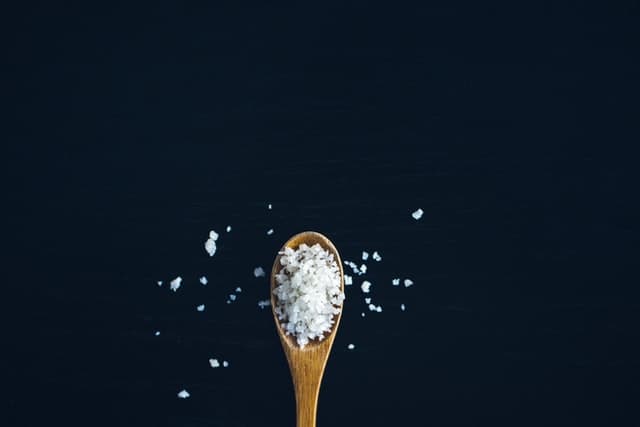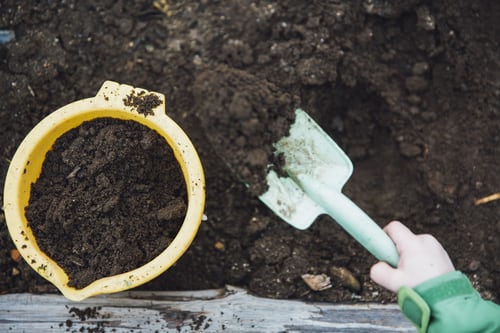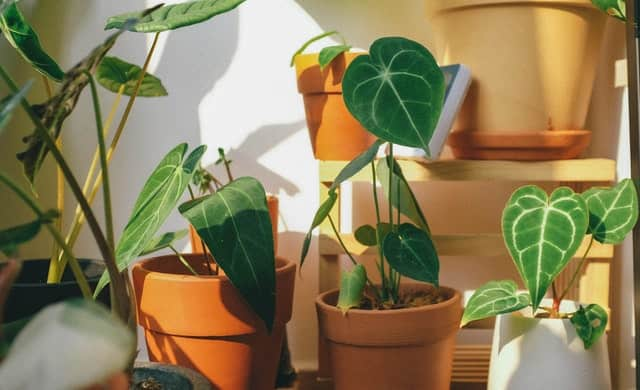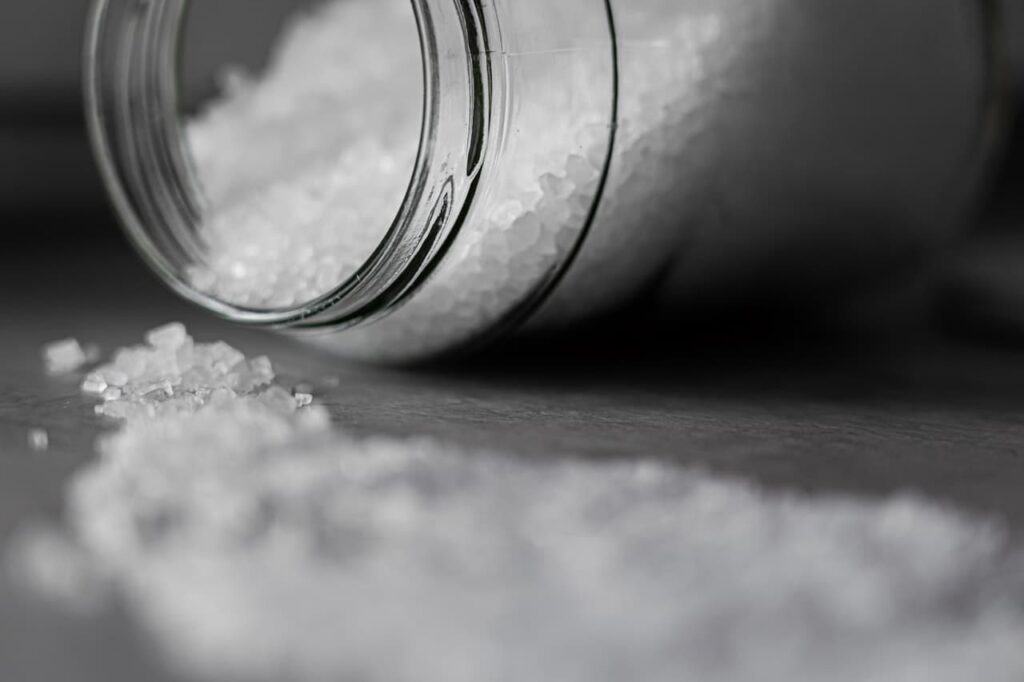Succulents are all in the rage now because of their striking looks and ability to survive under low maintenance. However, giving them an extra helping hand in enhancing their growth from time to time in the form of fertilizers and other additional supplements is always a great idea. Epsom salts are regarded as one of those supplements. So,
Are Epsom salts good for succulents? Epsom Salts are rich in magnesium sulfate which helps in better flowering, enhances the green color of the plant, & in boosting the uptake of essential nutrients from the surroundings. When used strategically on succulents they help in their significant development in terms of growth & overall health.
Table of Contents
What are Epsom Salts?
Epsom Salts are made up of Magnesium sulfate & it is popularly used for many health benefits. For centuries, the consumption of Epsom salts is used for relieving muscle soreness, constipation, fatigue, etc. It has a similar look to table salt however it tastes much bitter than that (source).
Epsom salts have been used in gardening for boosting plant growth for decades & it’s not a new thing. They are cheap and completely natural. It helps in promoting better plant growth.
How do Epsom Salts help in the Better Growth of Plants?
In order to survive plants along with the sun & water depends on the soil for obtaining a variety of minerals. The three main minerals without which plants cannot survive are:
- Nitrogen
- Phosphorus
- Potassium
- Apart from these they also need sufficient amounts of magnesium, calcium & sulfur.

Magnesium plays a wide range of roles in promoting the well-being of a plant.
- Magnesium helps in the proper functioning of the chlorophyll which is the sole component that helps in the absorption of sunlight during photosynthesis.
- Magnesium plays a big role in Phosphate metabolism & plant respiration
- It actively helps in cell division, activation of many enzymes & better uptake of Nitrogen & phosphorus from soil.
Epsom Salts are rich in Magnesium along with sulfate, both of which play a vital role in the well-being of plants. Sulfur also promotes photosynthesis, activating enzymes & in improving winter hardiness. (source).
Deficiency of these components can lead to:
- Stunted growth of the plant
- Leaves can turn yellow
- Purple or dark spots on the leaves can appear
So applying Epsom salts in a controlled amount to the succulents & other plants in the garden from time to time is a great habit.
Read: How Long can Succulents Go Without Water? (Ultimate Study)
Do succulents like Epsom salts?
- Epsom soil can act as a superfood. They also help in making the soil a little bit acidic in nature.
- Succulents love the soil of acidic pH. Over time the soil pH can become alkaline owing to the use of regular tap water.
Watering the garden soil with Epsom salt from time to time can help in restoring the balance of nutrient levels in the soil. The Epsom salt can act as secondary fertilizer and can boost the health of the succulents extensively.
Should You use Epsom salts for Succulents?
Fertilizing succulents from time to time especially in their growing seasons are extremely important. Lack of vital nutrients can lead to paler-looking leaves, change in color of the leaves & stem. If you fertilize your succulents twice a year and use a well-balanced fertilizer, rich in key minerals, using Epsom salts is not mandatory.
- Adding Epsom salt to the soil will not only help in fulfilling the vital functions of magnesium & sulfur but also help the succulent absorb nitrogen, phosphorus & potassium in a better way.
- As Epsom salts help in making the plants greener, it will make the succulent look much more vibrant. In case your succulent is looking paler even if you are following a strict soak and dry watering practice & provide it with the right amount of filtered sun then this can be a viable option to explore.
- The National Gardening Association did experiments where they grew one set of roses & peppers with the help of Epsom salt and the other set with commercial fertilizers. The results revealed that better flowering was obtained in the roses and the production of bigger peppers was seen in the set of the yield obtained with the help of Epsom salt in comparison with the yield of commercial fertilizers.
When Not to use Epsom soil for succulents
If the soil is already acidic in nature
You check the pH of your soil easily with the help of a pH meter.

If you recently added fertilizers to the soil or the pH of the soil is already slightly acidic then you should refrain from adding Epsom salt for the time being. Succulents like slightly acidic soil but do not prefer tremendously acidic soil.
As a substitute for a Fertilizer
You should always opt for fertilizing your growing succulents at least once before their growing season. Use a well-balanced liquid fertilizer rich in minerals of Nitrogen, Potassium, Phosphorous (10-10-10). These are the main nutrients that the succulent need to survive.
- Epsom salts do not contain any of these minerals. So they never must be used as a substitute for the main fertilizer. They must be used as an additional secondary supplement.
If the Soil is rich in Magnesium & Sulfur already
You should always test your garden soil for nutrient levels at least once every 3-4 years.
If the soil is already rich in Magnesium & sulfur it will be pointless to add Epsom salt in it. Adding the additional supplement is only needed in case the soil is deficient in those minerals.
Read: Do Succulents Need Sun to Grow?
How to add Epsom Salt on Succulent Soil
Just substitute one of your normal watering schedules with diluted Epson Salt treatment.
- Put one tablespoon of Epsom salt into one gallon of water and then spray the mixture in the adjustment soil area of the plant. You can stick with this process, once a month. Keep an eye on your succulents to see how they react to this treatment.
- If you use fertilizers, always check the ingredient list for the presence of magnesium and sulfur. If they are already present in the fertilizer you dont need to add them manually in form of Epsom salts at least for two months. Applying too much magnesium and sulfate to the soil can do more harm than good.
Should You apply Epsom Salts to potted Succulents?
Potted Plants have limited soil reserves and hence if you fertilize them once or twice a year at the start of the growing season, it is just enough for them.
You can never substitute fertilizing succulents with Epsom salts so always go for balanced fertilizers rich in essential minerals and magnesium, sulfur. So in that regard, there is no need to use Epsom salts on potted succulents.
- However, if you feel your succulent is looking paler and off-color even though it is not showing signs of underwatering or overwatering then you can apply a suitably diluted mixture of Epsom salt and water in the soil.

Only do this if it has been months since you have added fertilizers. Overdose of particular minerals in the soil can harm the plants.
- Different succulents have different needs. If you have”not fertilized in the last few months you can always experiment a bit. You can apply sufficiently diluted Epsom salt once to your succulents and see how they react to it. In most cases, you will find their color becoming more vibrant and greener. They contain essential micronutrients so applying them once won’t do harm to the plant, in turn, will benefit it.
- If you see positive results, applying diluted Epsom salts to potted plants more than twice a year is sufficient. Too much magnesium can lead to tightening of soil which facilitates water retention which is not good for succulents.
From Where can you get Epsom Salts for your Succulents?
Always use Epsom salts that are organic & branded. I generally prefer to buy Epsom salts of completely organic variety online.
The best thing about this product is, its an agricultural grade Epsom Salt which is manufactured only for gardening. You can check it out here.
Conclusion
Using Epsom salt for better nourishment and growth of your succulents is always a great idea. Applying them on a monthly basis is not mandatory and most succulents do well on their own without Epsom salts.
However, if they are showing acute signs of stress, malnourishment and you wanna give them an extra boost, then go for it. They are cheap and completely natural supplements. Make sure you dilute them in sufficient amount of water before applying and dont apply multiple times a month.
Also Read:
- Is Coffee Ground Good for Succulents?
- 5 Gorgeous Succulents that looks like Corals
- 7 Gorgeous Succulents for Balcony You” ‘ll Wish You”d Known Sooner
Leave a comment below if you have any queries!
Cheers

